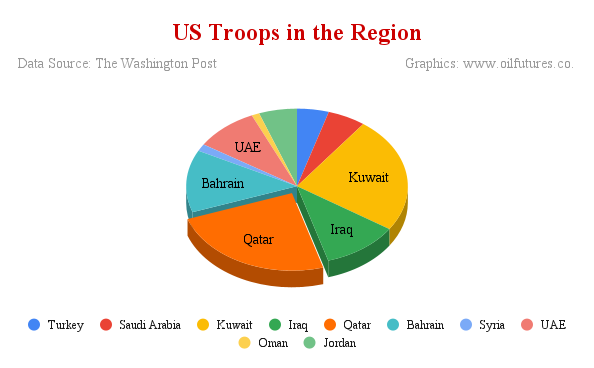 |
| B-52 Bomber |
The US seems to have clearly decided to retaliate over the drone attack on its base in Jordan on Sunday that resulted in the death of three servicemen and injuries to many more.
President Biden, in response to the questioning of the journalists on Tuesday, clearly indicated that he had already made up his mind as to what to do, without giving away anything for obvious reasons.
The absence of hubris and of course, the deafening silence on the part of the Americans is a classic case of 'the calm before the storm'; in the aftermath of the attack, President Biden said he would respond in a 'time and manner of our choosing', leaving it widely open to interpretation.
The developments in terms of the arrival of a fleet of the dreaded B-52 bombers, which are potentially armed with nuclear weapons and conventional bombs, in the Middle East, along with the other state-of-the-art aircrafts and those with refueling facilities clearly indicate, it is not just a matter of time, but a matter of space-time, before the anticipated attacks are launched, because the focus of the location/s remain to be guessed.
On Tuesday, Israel added fuel to the fire of speculation: Israeli defense minister accounted for amassing troops along the northern border between Israel and Lebanon, as a preparation for 'what comes next'.
Israel and Hezbollah, the Shia militant group from Lebanon, have been at an open for over three months since the war in the Gaza Strip broke out; they were mainly tit-for-tat attacks sans a major escalation. As far as Hezbollah that draws both material and moral support from Iran is concerned, the strategy is just to keep Israel engaged on its northern border in the hope that the Jewish state could be distracted from the war in Gaza.
During that period, Hezbollah leader repeatedly implied his reluctance to get into a major confrontation with Israel that could potentially bring sheer destruction to the state of Lebanon, which is facing the worst economic crisis in its recent history.
The military build-up along the Israeli-Lebanese border indicates that Israel anticipates a serious flare-up in the event the of the US retaliation against its chosen targets.
Military analysts, in this context, anticipate that the US may target Iranian military assets directly over the drone attack on its troops in Jordan, defying the conventional wisdom of not going to war against Iran.
There are already a significant number of US troops in the region, estimated to be closer to 50,000. The largest US military base is in Qatar.
In anticipating a serious response from the US, Iran kept denying that the Iraqi Shia group that launched the attack did not get orders from the latter. The military group in question, Kateab Hezbollah, in a separate development, on Tuesday declared that it would not launch any more attacks on the US troops in the region.
The US defense officials, meanwhile, said a military response is not going to be just one-off; they say there will be attacks on a sustained basis, implying the intention of taking on the Houthi rebels of Yemen directly as well.
Despite the ability of the US in launching attacks in a relatively short time while making use of its massive military assets in the region, there are still plenty of things at stake: the existing crisis in the Middle East could escalate in many directions with Iran being at the epicentre on military front; on the economic front, meanwhile, the movements of the containers ships in the Red will be subjected to more attacks and the shipping lines will certainly bear the brunt of the anger of those who come under fire that in turn could lead to high insurance premiums and of course, costs.
In short, the shipping lines will pass the rising costs on to the ordinary customers across the world and the inflation that recently showed some signs of being kept under control, will see the constrains melting away.
As far as the Iranian theocratic regime is concerned, a direct confrontation is not in its interest, despite its funding for various Shia military groups.
In the event of such a major conflict with the US - and the West by extension - a significant 'unknown' is looming over the Iranian government - the scale of patriotism, especially of the young, when the economic conditions are dire; it is something that cannot be taken for granted.
History is awash with scenarios when autocrats miscalculated this factor. The Iranian government, more than any one else, is aware of this factor and may try to deescalate a major crisis at the eleventh hour.
President Trump recently disclosed that the Iranians approached him through a go-between when General Soleimani, the top Iranian general, was assassinated on his orders in Iraq on January 3 in 2020.
Although Iran launched missile strikes against a US base in Iraq, according to President Trump, he was informed about it hours before the launching and both he and the Iranians reached 'some understanding' about it! The US did not retaliate on that occasion!
There is no reasons to believe that a sudden turn of events of this kind, just belonged to history, not to the future.







